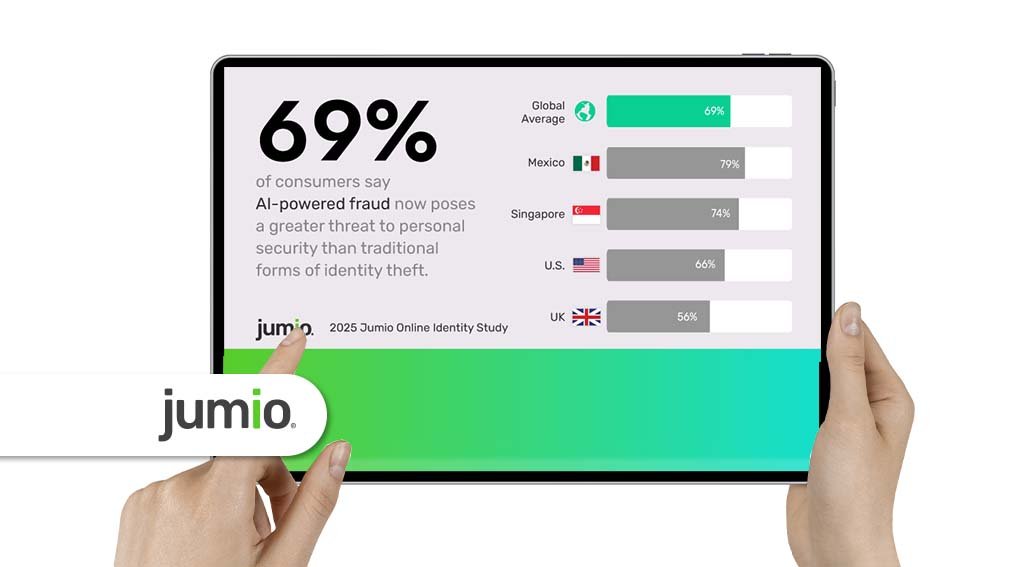There has been a significant decline in consumer trust in the digital world, largely driven by the rise of AI-powered fraud and deepfakes, according to a recent study by Jumio.
The 2025 Jumio Online Identity Study, which surveyed over 8,000 adult consumers across the U.S., the UK, Singapore, and Mexico, indicates growing unease about the authenticity of online content and personal security.
Globally, 69% of respondents said AI-enabled fraud now poses a greater threat to personal safety than traditional identity theft.
In Singapore, this concern is more acute—74% of local respondents said AI scams present a bigger risk, and 71% also felt such scams were harder to detect than conventional methods.
This skepticism is reflected in how people engage with digital content.
Seven in ten global respondents reported being more cautious about what they see online compared to last year.
Only 37% said they now believe most social media accounts are authentic, and just 36% expressed stronger trust in online news—highlighting widespread uncertainty in the face of increasingly manipulated content.
The study also identified specific AI-driven tactics causing concern.
Globally, 76% of consumers worried about fake digital IDs created using AI, 75% cited scam emails, 74% flagged video and voice deepfakes, and 72% were concerned about being misled by doctored social media content.
Singaporeans expressed even greater concern across these categories, with figures ranging from 81% to 84%.
While many consumers rely on themselves to protect their personal data—93% said they trust themselves the most—88% said they trust Big Tech, and 85% trust government agencies.

There is also a strong expectation for tech companies to step up.
Forty-three percent of respondents said Big Tech should take the lead in preventing AI-powered fraud, compared to just 18% who believed the responsibility lies with individuals.
Despite the unease, the survey showed consumers are willing to cooperate with more rigorous security processes.
Most respondents said they would spend more time on identity verification in sectors such as banking and financial services (80%), government services (78%), and healthcare (76%).

Jumio also pointed to the rise of fraud-as-a-service toolkits on the dark web, which make it easier for even inexperienced fraudsters to launch sophisticated attacks using synthetic identities, deepfakes, and botnets.

“As generative AI continues to lower the barrier for sophisticated scams, Jumio’s findings highlight an urgent need for businesses to rethink digital identity protection — not only to reduce fraud, but also to preserve customer trust and digital engagement itself,”
said Bala Kumar, Chief Product and Technology Officer at Jumio.

“Our industry must develop the tools we need to stay ahead of the AI-fraud arms race, because traditional identity verification isn’t going to cut it anymore. From multi-modal biometrics to connected data, Jumio is committed to putting the next generation of identity intelligence in the hands of enterprises.
However, we must ensure we take consumers on this journey too. Building a trustworthy digital world depends on strong consumer education and transparency.”
said Jumio’s CEO Robert Prigge.


